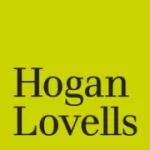Executive summary
In a short, but sharply divided decision rendered on 4 February 2011, the Second Circuit denied rehearing in banc of a 17 September 2010 panel decision in Kiobel v. Royal Dutch Petroleum holding that because corporate liability is not recognized under customary international law, federal courts do not have jurisdiction to hear cases brought against corporations under the U.S. Alien Tort Statute. By characterizing the case as one that "presents a serious issue and generates a circuit split" the dissenters clearly expressed the view that the issue is ripe for Supreme Court review. On the same day, the Kiobel panel rejected two-to-one plaintiffs' request for a panel rehearing. As a consequence, corporations will continue not to be subject to Alien Tort Statute claims in the Second Circuit.
Background
Plaintiffs, residents of the Ogoni Region of Nigeria, commenced
this action in 2002 in federal court in New York, alleging that the
Shell defendants were complicit in the Nigerian government's
international law violations. The lawsuit was brought under the
Alien Tort Statute (ATS), a 1789 U.S. statute under which
plaintiffs have brought numerous claims against multinational
corporations in the last two decades alleging serious violations of
human rights. In 2006, the trial court dismissed certain of
plaintiffs' claims, but denied defendants' motion to
dismiss others. Both sides appealed the lower court's
decision.
The Second Circuit's decisions
The Court's September 17 panel decision, written by Judge
José Cabranes and joined by Chief Judge Dennis Jacobs, held
that international law, not domestic law, governs the scope of
liability for violations of customary international law under the
ATS, and that the liability of corporations for violations of
customary international law has not attained a discernible, much
less universal, acceptance among nations of the world in their
relations inter se. Because corporate liability is not recognized
as a "specific, universal, and obligatory" international
norm, as the Supreme Court required in its only ATS decision, the
Court held that federal courts lacked subject matter jurisdiction
to entertain ATS cases against corporations. Plaintiffs sought
rehearing and rehearing in banc.
In an opinion dissenting from the Court's denial of rehearing
in banc, Judge Lynch, joined by three others, argued that rehearing
in banc should have been granted because the panel's decision
conflicts with a decision of the Eleventh Circuit Court of Appeals
and because "the panel majority opinion is very likely
incorrect as to whether corporations may be found civilly liable
under the Alien Tort Statute . . . ."
Even more interesting, though, are the opinions rendered by the
Kiobel panel in rejecting a panel rehearing. Chief Judge
Jacobs' opinion examines the real-world consequences of reading
the concept of corporate liability into international law. Many ATS
cases are commenced against foreign corporations, and many of those
cases have provoked vehement protest from the defendants' home
nations, impairing rather than encouraging comity among nations.
Further, the Second Circuit's decision in Presbyterian
Church of Sudan v. Talisman Energy Inc., unanimously affirming
the district court's grant of summary judgment in Talisman
Energy's favor, held that a successful ATS plaintiff must
demonstrate that the defendant aided and abetted human rights
abuses "with the positive intention of bringing about a
violation of the Law of Nations." (Hogan Lovells represented
Talisman Energy in that case). As a consequence of the Talisman
Energy decision, the only viable ATS action is one in which a
corporation purposefully engaged in the most heinous international
crimes known to man – examples of which are virtually
non-existent. Despite that reality, Chief Judge Jacobs wrote, the
ability of plaintiffs to plead around Talisman means that
multinational corporations still would be subject to coercive
pressures to settle ATS cases "even where a plaintiff's
likelihood of success on the merits is zero." Kiobel,
however, appropriately offers a threshold ground for the dismissal
of such actions.
Judge Leval, who dissented from the panel decision in
Kiobel, dissented also from the decision denying a panel
rehearing. He argues that Chief Judge Jacobs' opinion
"reveals an intense, multi-faceted policy agenda" and is
founded on policy concerns that are inappropriate for the judiciary
to consider and that do not justify the conclusion that
corporations cannot be liable for violations of customary
international law. In his concurring opinion, Judge Cabranes allows
that grave policy decisions may influence a legislative
determination as to whether corporations should be subject to ATS
liability, but he observes that it was "fidelity to the
law," not those policy decisions, that drove the
majority's decision.
What's next?
It remains to be seen whether the Kiobel plaintiffs will seek Supreme Court review. And even if they do seek Supreme Court review, it is by no means certain that the Supreme Court will grant certiorari, having recently declined the opportunity to address the question of corporate liability under the ATS in Talisman Energy. At least for now, the courts within the Second Circuit remain closed to ATS litigants pursuing claims against corporations
The content of this article is intended to provide a general guide to the subject matter. Specialist advice should be sought about your specific circumstances.


